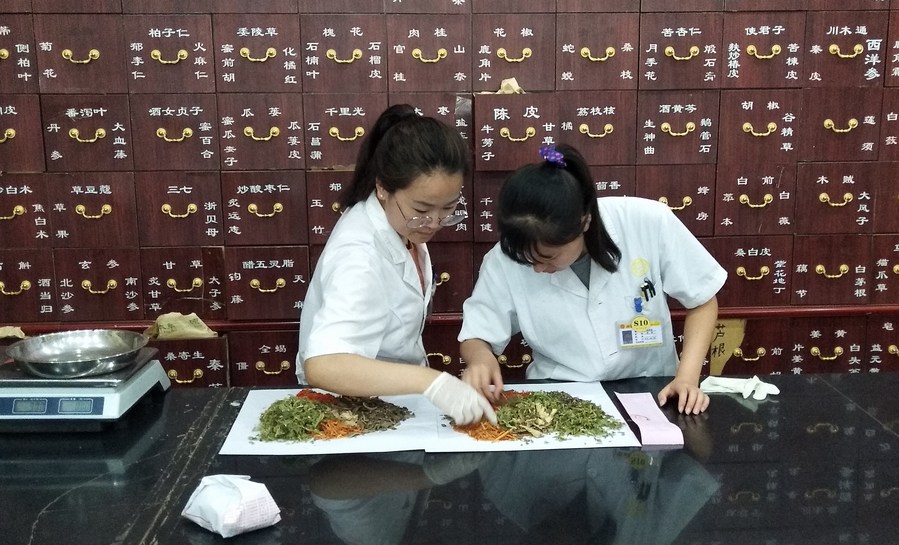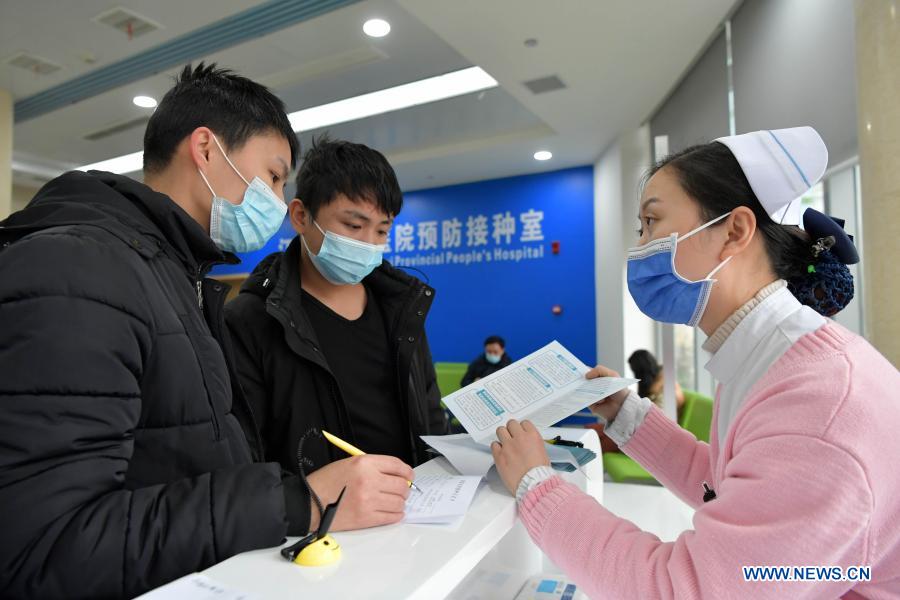
Photo taken with a mobile phone shows pharmacists preparing Chinese herbal medicine at a Chinese medicine store in Beijing, capital of China, July 31, 2019. (Xinhua/Zhang Chao)
Clinical data showed that Shufeng Jiedu capsules, added to standard antiviral therapy, significantly reduced the clinical recovery time of COVID-19 and fatigue as well as cough days, compared to standard antiviral therapy alone.
BERLIN, Nov. 8 -- In a recently-published study, Chinese and German researchers have suggested that Shufeng Jiedu capsules, a patented herbal drug composed of eight medicinal plants, might be "a promising herbal therapy for moderate COVID-19."
The scientific paper was published online on Oct. 22 by Phytomedicine, a monthly peer-reviewed medical journal. The research team included Xia Lu of Shanghai Public Health Clinical Center affiliated to Fudan University, Shi Yujing of the China Academy of Chinese Medical Sciences, Su Jie of Shanghai Tech University, and Thomas Friedemann of HanseMerkur Center for Traditional Chinese Medicine at the University Medical Center in Germany.
There is currently no confirmed cure or vaccine for COVID-19. But the use of Traditional Chinese Herbal Medicine (TCM) to combat COVID-19 got international attention because it was regularly used during the pandemic, the authors said in the study. TCM was used successfully for the treatment of SARS in 2003 and influenza A (H1N1) in 2009, they said.
Shufeng Jiedu capsules, consisting of eight medicinal plants, are recognized for the treatment of different viral respiratory infectious diseases based on their antiviral, anti-inflammatory and immunomodulatory activities against acute lung injury, the authors said.
The antiviral and anti-inflammatory properties of Shufeng Jiedu capsules were confirmed by the mouse model. The decreased inflammatory factors in the lung tissue of coronavirus-infected mice can be explained by attenuation of pro-inflammatory pathways by bioactive compounds of the capsules, they said.
Network analysis showed that 11 inflammation and immunomodulation-related pathways were influenced by bioactive compounds of the capsules, they said.













